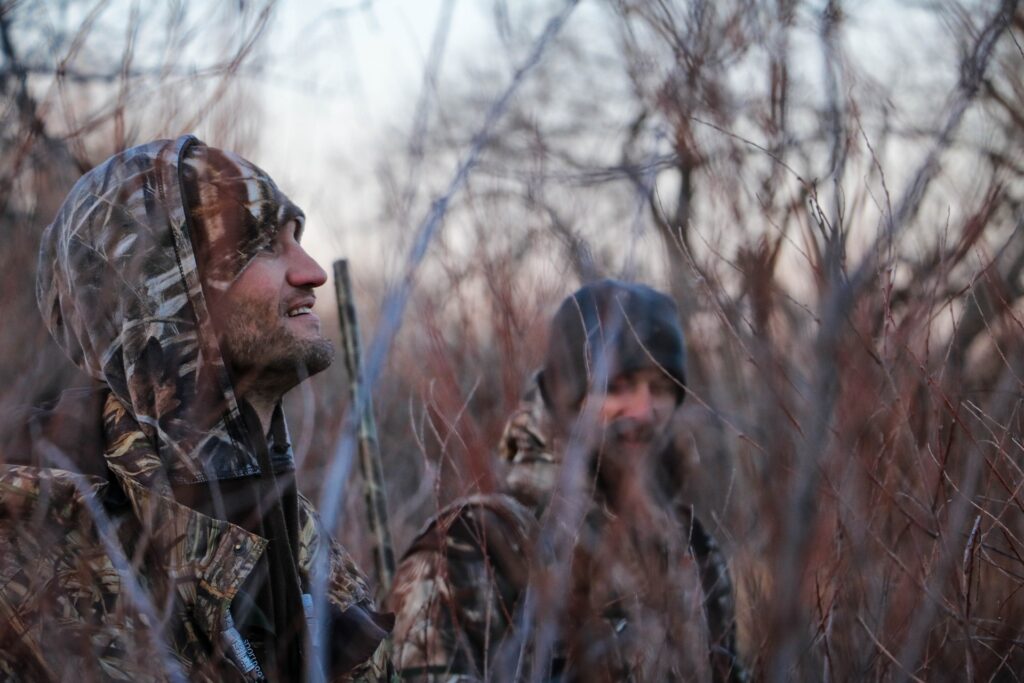

Knowing the cost of a hunting license is important for anyone planning to hunt. The fees for hunting licenses can vary based on several factors.
These factors include the state you are in, your residency status, your age, the type of weapon you will use, the animal you will be hunting, and the duration of your hunting trip.
Check out this Youtube video: If you want to know how much hunting license cost and stay updated with the latest changes in hunting and fishing license fees, be sure to watch “Hunting, Fishing License Fees To Increase in July.”
Understanding Hunting Licenses
Definition of a hunting license
A hunting license is an official permit issued by the government that grants the bearer the privilege to hunt specific types of animals within a designated time frame. It is not a constitutional right, but rather a regulated activity governed by state laws and wildlife agencies. The license includes information such as the authorized species, hunting zones, and the duration of validity.
Purpose of obtaining a hunting license
The primary purposes of obtaining a hunting license are regulation, wildlife conservation, public safety, and revenue generation. Wildlife agencies utilize the funds from hunting licenses for habitat management, wildlife research, and conservation projects. This plays a crucial role in maintaining balanced ecosystems and protecting endangered species. Furthermore, hunting licenses help in controlling and preventing the spread of animal-borne diseases, thereby ensuring public health and safety.
Legal requirements for obtaining a hunting license
To acquire a hunting license, individuals must meet certain legal requirements, which typically include being over the age of 12, possessing a valid form of identification issued by the state, and in some cases, securing parental consent for minors. Different states may offer discounted licenses for specific groups such as in-state residents, senior citizens, and military veterans.
These requirements aim to ensure that hunters are knowledgeable about regulations and safety measures, contributing to the overall sustainability of hunting activities.
| Requirements for Obtaining a Hunting License |
|---|
| 1. Minimum age of 12 years |
| 2. Valid state-issued identification |
| 3. Parental consent for minors in some cases |
| 4. Discounted licenses for specific groups |
Types of Hunting Licenses
Different types of hunting licenses available
In the world of hunting, there are several types of licenses available to cater to the diverse interests and needs of hunters. These include but are not limited to the general hunting license, which allows hunters to pursue a variety of game, and the specific tags or permits for hunting particular species such as deer, turkey, or bear.
Additionally, specialized licenses may be required for activities like bow hunting, muzzleloading, or waterfowl hunting. Each of these licenses serves a unique purpose, offering hunters the opportunity to engage in their preferred hunting methods and pursue specific game.
Specific fees for each type of hunting license
When it comes to obtaining hunting licenses, it is essential to consider the specific fees associated with each type of license. The costs vary based on factors such as the hunter’s age, residency status, and the type of hunting activity they wish to pursue.
For instance, the fees for a general hunting license for residents aged 16-69 might differ from those for individuals aged 70 and above. Similarly, additional charges could apply for obtaining special permits or tags for hunting certain species, contributing to the overall cost of the hunting license.
Eligibility requirements for each type of hunting license
While the availability of hunting licenses opens the door to exciting outdoor pursuits, it is crucial to understand the eligibility requirements associated with each type of license. Eligibility often pertains to factors such as age, residency status, completion of hunter safety education courses, and compliance with specific hunting regulations.
For instance, certain types of hunting licenses may have age restrictions, necessitating potential hunters to meet minimum age criteria before they are deemed eligible to apply. Moreover, residency requirements and educational prerequisites serve as additional determinants for individuals seeking to obtain hunting licenses tailored to their preferences.
Hunting License Fees by State
Comparison of hunting license costs in different states
When it comes to the cost of hunting licenses, there is a significant variance across different states in the United States. For instance, in New York, the fees for various hunting licenses range from $22 for ages 16-69 to $100 for those aged 16 and above. On the other hand, in some states, non-residents are required to pay substantially higher fees, such as $2,500 or even more for hunting big game. This enormous difference in fees underscores the need for hunters to be aware of the specific licensing costs in their desired hunting locations.
To provide a comprehensive comparison, the following table outlines the hunting license fees in a selection of states:
| State | Resident Hunting License Fee | Non-Resident Hunting License Fee |
|---|---|---|
| New York | $22 (ages 16-69) | $100 (ages 16+) |
| Colorado | $30 – $100 | $30 – $600 |
| Montana | $20 – $34 | $80 – $1,080 |
| Texas | $25 – $32 | $47 – $315 |
| California | $51.02 – $186.67 | $165.30 – $598.01 |
Factors that contribute to the variation in hunting license fees
The variation in hunting license fees can be attributed to a multitude of factors. These encompass the hunter’s residency status, age, choice of weapon, target animal, and the duration of the hunting activity. Furthermore, the policy frameworks and budgetary considerations of individual state wildlife agencies play a pivotal role in determining the fee structure. Non-resident hunters often face steeper charges due to their limited contribution to the local economy compared to residents. Each state’s unique ecosystem and wildlife management priorities also influence the fees to ensure sustainable conservation efforts.
How hunting license fees are determined by state authorities
State authorities determine hunting license fees through a comprehensive assessment that contemplates several key aspects. They analyze generated revenues, the anticipated demand for hunting permits, and the potential impact on wildlife conservation. By evaluating these factors, authorities can ascertain the ideal fee structure that ensures sustainable funding for wildlife management and conservation initiatives. Moreover, the intensive cost of regulating non-resident hunting activities, combined with the aim of sustaining local ecosystems, necessitates the implementation of distinctive fee systems. These considerations enable state authorities to strike a balance between promoting hunting activities and ensuring the long-term preservation of natural habitats and wildlife populations.
Resident vs Non-Resident Hunting License Fees
Differences in hunting license costs for residents and non-residents
When it comes to hunting license costs, there’s a significant disparity between residents and non-residents across the United States. Residents enjoy substantially lower fees for acquiring a hunting license, typically ranging from $15 to $40, depending on the state and the specific type of hunting license. On the other hand, non-residents are met with considerably higher costs, often reaching up to $1,000 for big game hunting permits in certain states. This enormous difference in pricing underscores the inclination of states to prioritize their residents in hunting activities while making non-resident licenses more lucrative as a source of revenue.
One state where this pricing chasm is particularly stark is Alaska, where non-residents encounter exorbitant fees, but residents are granted hunting license benefits at significantly reduced rates. This enormous pricing gulf serves to discourage non-residents from navigating the intricate regulatory landscape and push them towards seeking alternative hunting locations.
Moreover, it underscores the state’s commitment to preserving hunting opportunities for its residents while maximizing revenue from non-residents.
However, the discrepancies in hunting license costs can lead to debates about fairness and accessibility, as some non-residents may find the financial burden prohibitive, limiting their ability to engage in hunting activities outside their home states. This could potentially impact tourism and local economies reliant on non-resident hunters, raising questions about the delicate balance between revenue generation and inclusive access to outdoor recreational pursuits.
The following table illustrates the striking disparities in hunting license costs between residents and non-residents in various states:
| State | Resident License Cost | Non-Resident License Cost |
|---|---|---|
| Alaska | $25 | $500 (big game) |
| Montana | $20 | $600 (big game) |
| Colorado | $38 | $655 (big game) |
| Wyoming | $16 | $693 (big game) |
| Oregon | $29 | $160 (hunting tag) |
| New Mexico | $15 | $280 (hunting license) |
How residency is defined for hunting license purposes
Residency in the context of hunting license purposes is typically established by demonstrating permanent domicile and intent to return. This is often validated through various official documents such as a driver’s license, vehicle registration, voter registration, and tax records, which collectively serve as evidence of an individual’s ties to a specific state. Notably, owning property within a state does not automatically qualify someone as a resident for hunting license purposes; it is the enduring commitment and connection to the state that establishes residency.
Moreover, individuals residing in two states cannot claim residency in both for hunting license purposes. This asserts the exclusivity of hunting privileges tied to a single state and prevents individuals from exploiting residency regulations to gain advantageous hunting license fees across multiple states.
While there are instances where lifetime licenses may be obtained in one state prior to relocating to another, the fundamental principle prevails: residency for hunting license purposes is closely tied to an individual’s primary and enduring connection to a specific state.
Impact of residency on hunting license eligibility and fees
The impact of residency on hunting license eligibility and fees is profound and multifaceted. Primarily, residency plays a pivotal role in determining an individual’s eligibility for acquiring a hunting license in a specific state. This often translates into substantial fee differentials, as residents benefit from significantly lower costs due to their established ties and contributions to the state. Conversely, non-residents must contend with heightened fees, reflective of the state’s aim to balance revenue generation and local access to hunting opportunities.
Moreover, the impact of residency regulations extends beyond direct financial considerations. Residency requirements serve to safeguard hunting opportunities for residents and ensure that natural resources are managed sustainably and responsibly.
This ensures that the interests of local hunters and the broader community are prioritized, promoting the preservation of wildlife populations and ecosystem health. Simultaneously, it emphasizes the need for equilibrium, where hunting license fees generate revenue to support conservation efforts and wildlife management initiatives while ensuring equitable access for both residents and non-residents.
In conclusion, the disparities in hunting license costs for residents and non-residents underscore the intricate dynamics at play when balancing access, revenue, and conservation in the realm of hunting. Residency regulations wield substantial influence over hunting license eligibility, fees, and the broader conservation framework, encapsulating the intricate intersection of financial, regulatory, and ecological factors that define hunting activities across the United States.
Additional Costs and Fees
Other expenses associated with obtaining a hunting license
When obtaining a hunting license, there are additional costs to consider beyond the basic license fee. These can include processing fees, application fees, and habitat stamp fees.
Some states may also require hunters to complete a hunter education course, which may come with its own associated costs. Additionally, there might be fees for accessing certain hunting areas or for specific hunting activities such as waterfowl hunting.
Another potential expense to consider is the cost of purchasing the necessary gear and equipment for hunting, such as firearms, ammunition, and hunting clothing. These expenses can vary widely depending on individual preferences and the type of hunting being pursued.
It’s essential to budget for these additional expenses to ensure a successful and enjoyable hunting experience.
Special permits, stamps, and tags that may be required
In addition to the basic hunting license, hunters may need special permits, stamps, or tags for specific types of game or hunting activities. For example, some states require additional permits for hunting certain species, such as deer, turkey, or waterfowl.
These permits often come with their own associated fees and may be subject to specific application processes or quotas.
Furthermore, certain types of hunting, such as migratory bird hunting, may require federal stamps or permits in addition to state-issued licenses. These federal stamps, such as duck stamps, are crucial for complying with regulations and participating in certain hunting activities.
It’s essential for hunters to familiarize themselves with the specific permit and stamp requirements for their desired hunting pursuits and budget accordingly.
Potential cost-saving strategies for obtaining hunting licenses
Hunters can explore several strategies to potentially reduce the costs associated with obtaining hunting licenses. One approach is to take advantage of multi-year or lifetime license options offered by some states.
While the upfront cost may be higher, these long-term licenses can ultimately result in significant cost savings for frequent hunters.
Another cost-saving strategy is to consider discounted license options for specific demographic groups, such as youth, seniors, veterans, or individuals with disabilities. Many states offer reduced-rate or free hunting licenses for these groups as part of their efforts to promote outdoor recreation and conservation.
Additionally, hunters can explore bundled license options that combine hunting with other outdoor activities such as fishing. These combination licenses often come at a reduced overall cost compared to purchasing separate licenses for each activity.
By carefully researching and leveraging these cost-saving opportunities, hunters can make their hunting pursuits more affordable and accessible.
| License Type | Cost |
|---|---|
| Single-year hunting license | $100 |
| Multi-year hunting license | $250 (valid for 3 years) |
| Lifetime hunting license | $600 |
| Senior hunting license | $40 (age 65 and above) |
Calculating the Total Cost
Steps to Determine the Total Cost of Obtaining a Hunting License
To calculate the total cost of obtaining a hunting license, it’s pivotal to consider several essential factors. Firstly, you need to determine whether you are applying for a resident or non-resident hunting license, as the fees can significantly vary between the two. Next, identify the type of game you intend to hunt, which will influence the cost of the license. Additionally, evaluate if there are any prerequisites, such as completion of a hunter safety course, which might incur additional costs. Finally, don’t overlook the associated expenses like permits, stamps, and habitat fees, these can contribute to the overall cost.
Understanding the Financial Commitment of Hunting License Fees
The financial commitment of hunting license fees encompasses multiple components. Primarily, it includes the base fee for the hunting license, determined by factors such as residency status and the duration for which the license is valid. Additionally, some states impose application fees or processing charges, which should be factored into the total expenditure. Moreover, non-resident licenses may incur substantial premiums, and certain game-specific permits might also necessitate extra expenses.
Budgeting for Hunting License Costs and Related Expenses
When budgeting for hunting license costs and related expenses, it’s crucial to create a comprehensive overview. Begin by outlining the mandatory expenditures, including the base hunting license fee, permits, stamps, and any obligatory processing fees. Subsequently, factor in any mandatory equipment or gear, taking into account potential purchases or rentals. Ensure to account for travel expenses, such as fuel, accommodation, and meals, particularly if the hunting grounds are situated at a considerable distance from your residence. Lastly, it’s prudent to set aside a contingency fund to accommodate any unforeseen charges or emergent requirements.
| State | Resident License Cost | Non-Resident License Cost |
|---|---|---|
| California | $51.02 | $165.84 |
| Texas | $25 | $315 |
| Colorado | $33 | $661 |
| New York | $22 | $100 |
| Montana | $24 | $1075 |
Affordability of Hunting Licenses
In considering the Affordability of hunting license fees for different demographics, it is essential to address the disparities that exist in the pricing structures across various states. Hunting license costs often vary based on residency status, with non-residents generally facing higher fees than residents. For example, a non-resident hunting license in a popular hunting state like Colorado can cost over $500, while a resident may pay less than $50 for the same privilege, creating a significant disparity in accessibility based on geographic location.
To support programs and initiatives to make hunting licenses more accessible, state wildlife agencies and conservation organizations have implemented discounted or free hunting programs for specific demographic groups. For instance, programs tailored for youth, veterans, seniors, and individuals with disabilities aim to reduce economic barriers by providing reduced or waived hunting license fees. These initiatives not only foster inclusivity but also encourage the younger generation to engage in outdoor activities and develop an appreciation for wildlife conservation.
In addressing economic barriers to obtaining hunting licenses, it’s vital to acknowledge the underlying financial strain that license costs may pose on low-income individuals. It is imperative for wildlife agencies to explore innovative funding sources to subsidize hunting license fees and promote equal participation in hunting activities. Furthermore, the implementation of income-based fee structures or sliding scale pricing models tailored to an individual’s financial capacity can alleviate the burden for those facing economic challenges without compromising conservation efforts.
Moreover, an emphasis on community outreach and education can play a pivotal role in promoting hunting license affordability. By providing comprehensive information about available subsidies, scholarships, and financial aid programs, individuals from all economic backgrounds can be empowered to pursue hunting as a recreational activity without being hindered by financial constraints.
This proactive approach not only fosters a sense of inclusivity but also encourages a broader demographic to engage in sustainable hunting practices.
Ensuring the affordability and accessibility of hunting licenses for all demographics is paramount in preserving the tradition of hunting while safeguarding wildlife conservation efforts. It requires a concerted effort from state authorities, conservation organizations, and the community to mitigate economic barriers and foster a more equitable landscape for hunting enthusiasts from diverse backgrounds.
| State | Resident License Cost | Non-Resident License Cost |
|---|---|---|
| Colorado | $30 – $100 | $300 – $900 |
| Montana | $20 – $50 | $150 – $1000 |
| Texas | $25 – $132 | $315 – $1000 |
| Wisconsin | $24 – $72 | $160 – $600 |
Historical Trends in Hunting License Costs
Hunting License Fee Evolution
Data on the historical evolution of hunting license fees provides insights into the changing landscape of hunting practices and regulations. Over the years, hunting license fees have experienced fluctuations due to various socio-economic and environmental factors.
States and researchers often utilize this data to discern trends in license sales and to estimate the economic impact of hunting and fishing.
Factors Influencing Changes in Hunting License Costs Over Time
Several key factors have exerted influence over the fluctuation of hunting license costs throughout history. Economic trends, including the rise and fall of specific industries, technological advancements, and shifts in consumer behavior, have played pivotal roles.
Additionally, environmental factors such as changes in wildlife population and conservation efforts have also impacted hunting license fees. Policy changes and regulatory interventions implemented by wildlife management agencies have further influenced the costs associated with obtaining hunting licenses.
In the context of societal changes, demographic shifts, and urbanization have brought about alterations in hunting license costs as well. As population dynamics transform, so do the demands and regulations around hunting, culminating in changes to the associated license fees.
Impact of Inflation and Economic Trends on Hunting License Fees
Inflation and economic trends have had a significant impact on the fluctuation of hunting license fees over time. The increasing cost of living, coupled with inflation, has led to upward movements in the prices of hunting licenses.
This is primarily attributed to the need for wildlife management agencies to keep pace with rising costs and maintain sustainable revenue streams to support conservation and restoration efforts.
Moreover, the economic ebb and flow of specific industries, such as agriculture and forestry, have influenced the pricing structures of hunting licenses. As these industries experience growth or downturns, hunting license costs have been adjusted to align with prevailing economic conditions.
A depiction of the evolution of hunting license fees, highlighting the interplay of factors influencing cost fluctuations, is presented in the table below:
| Year | Average License Cost (USD) | Contributing Factors |
|---|---|---|
| 2000 | $50 | – Economic trends |
| 2005 | $55 | – Regulation changes |
| 2010 | $60 | – Inflation |
| 2015 | $65 | – Demographic shifts |
| 2020 | $70 | – Wildlife population |
The understanding of historical trends in hunting license costs showcases the dynamic nature of this economic aspect and its intricate entanglement with various influential factors.
Impact of Hunting License Fees on Conservation
How hunting license fees contribute to wildlife conservation
The hunting license fees play a crucial role in wildlife conservation by providing substantial financial support for conservation efforts. License fees serve as a primary source of funding for wildlife management, habitat preservation, and the protection of various flora and fauna. These fees enable wildlife agencies to implement conservation projects, conduct research, and execute initiatives aimed at maintaining ecological balance and biodiversity. Additionally, hunting license sales contribute significantly to the management of game species and their habitats, ensuring sustainable wildlife populations for future generations.
Examples of conservation efforts funded by hunting license fees
Several notable conservation efforts have been directly funded by hunting license fees. One prominent example is the restoration and preservation of critical habitats for endangered and threatened species. These funds are also utilized for wildlife population monitoring, habitat restoration, and anti-poaching initiatives aimed at safeguarding vulnerable species from illegal hunting and habitat destruction. Furthermore, hunting license revenues have supported groundbreaking research projects, community-based conservation programs, and public education campaigns focused on wildlife protection and conservation.
Controversies and debates surrounding the use of hunting license revenue
The utilization of hunting license revenue has sparked debates and controversies in the conservation community. Some critics argue that hunting license fees may not be allocated effectively for conservation purposes, leading to concerns about transparency and accountability in fund distribution.
Additionally, ethical considerations surrounding the use of hunting-derived revenue for conservation initiatives have been a point of contention. However, proponents emphasize the tangible conservation outcomes achieved through these funds, highlighting the critical role of hunting license fees in sustaining wildlife conservation efforts.
Understanding the Value of Hunting Licenses
Hunting licenses offer a plethora of benefits, with the primary one being the preservation of wildlife. By obtaining a hunting license, individuals contribute to wildlife conservation efforts, thereby protecting the balance of ecosystems and ensuring the sustainable existence of various species. Furthermore, the revenue generated from hunting license fees is often channeled into habitat management and enhancement programs, which directly aids in the preservation of wildlife and their natural habitats. Additionally, hunting licenses enable authorities to implement and enforce regulations, ensuring that hunting activities are conducted in a sustainable and ethical manner, thereby preventing over-exploitation.
Benefits of Obtaining a Hunting License
There are several intrinsic benefits associated with obtaining a hunting license. Firstly, it provides individuals with the opportunity to partake in recreational activities that are deeply rooted in tradition and culture while fostering a sense of appreciation for nature and wildlife.
Moreover, it allows for the cultivation of vital skills such as marksmanship, tracking, and outdoor survival, contributing to personal development and self-reliance. Furthermore, hunting promotes a deeper understanding of the ecological balance and the importance of wildlife conservation, instilling a sense of responsibility and stewardship towards the environment.
Lastly, hunting activities can also serve as a means of bonding within families and communities, creating memorable experiences and strengthening social connections.
Another significant aspect to consider is the recreational, environmental, and cultural value that hunting licenses encompass. Recreational hunting plays a pivotal role in outdoor recreation, providing individuals with an avenue to connect with nature, relish the serenity of the wilderness, and engage in an age-old practice that is deeply entrenched in cultural traditions. Furthermore, it fosters a profound appreciation for wildlife and natural landscapes, promoting an environmentally conscious mindset and nurturing a desire to conserve the natural world.
Recreational, Environmental, and Cultural Value of Hunting Licenses
The issuance of hunting licenses offers an avenue for individuals to partake in recreational activities that go beyond the mere pursuit of game. The recreational value is underscored by the opportunities it presents for individuals to immerse themselves in nature, embrace outdoor adventures, and create lasting memories.
It additionally bolsters the cultural significance of hunting as a time-honored tradition that is deeply interwoven with heritage and customs, playing a crucial role in the preservation of cultural practices and values.
This aligns closely with the environmental value, as hunting encourages an active engagement with the natural world and promotes the necessity of sustainable resource management. Moreover, hunting license fees often contribute to funding environmental conservation initiatives and the preservation of fragile ecosystems, ensuring the perpetuation of natural habitats and the protection of biodiversity.
Perspectives on the Return on Investment for Hunting License Fees
When contemplating the return on investment for hunting license fees, it is essential to acknowledge the multifaceted benefits that permeate various facets of society. The revenue generated from these fees bolsters wildlife conservation efforts, leading to the establishment of sustainable wildlife populations and the enhancement of natural habitats. Moreover, it provides crucial funding for state wildlife agencies, facilitating the implementation of regulations, research endeavors, and wildlife management programs.
One of the key components of the return on investment is the enduring impact on local economies. Hunting activities spur expenditure in rural communities, thereby stimulating economic growth and supporting local businesses.
Additionally, the revenue derived from hunting license fees filters into broader conservation initiatives, benefitting not only hunters but the entire ecosystem. The return on investment for hunting license fees extends beyond monetary gains, encompassing cultural, environmental, and conservation-oriented dividends, contributing to the perpetuation of wildlife and the safeguarding of natural landscapes.
| Benefits of Obtaining a Hunting License | Recreational, Environmental, and Cultural Value of Hunting Licenses |
|---|---|
| Preservation of Wildlife | Connection with Nature and Outdoors |
| Revenue for Habitat Management | Cultural Traditions and Heritage |
| Regulation and Ethical Practices | Promotion of Environmental Consciousness |
Recommended Amazon Products for Understanding Hunting License Costs
Here’s a curated list of products that can help you understand hunting license costs with ease. These recommendations are based on relevance to the topic and positive customer reviews.
Outdoor Hunting License Holder


The outdoor hunting license holder is designed to keep your hunting license and other important documents safe and protected from the elements. With a durable and weather-resistant construction, this product offers a convenient solution for organizing your hunting paperwork.
The multiple pockets and clear sleeves provide ample storage space for licenses, permits, and other essential items.
Deluxe Hunting License Kit


The deluxe hunting license kit includes a variety of tools and resources to help you navigate the process of obtaining a hunting license. It contains helpful guides, application forms, and reference materials that can assist you in understanding the requirements and costs associated with hunting licenses.
This comprehensive kit is designed to streamline the licensing process and ensure that you have all the information you need.
Hunting License Fee Calculator


The hunting license fee calculator is a handy device that allows you to calculate the total cost of obtaining a hunting license. By inputting relevant information such as residency status, license type, and additional fees, you can accurately estimate the expenses involved.
This tool provides valuable insights into the affordability of hunting licenses and can help you plan your budget effectively.
Hunting License Manual


The hunting license manual is a comprehensive resource that covers the various aspects of hunting licenses, including costs, eligibility requirements, and state-specific regulations. It offers in-depth explanations and practical tips for navigating the process of obtaining a hunting license.
This informational guide is perfect for individuals who want to gain a thorough understanding of hunting license fees and related expenses.
Trail Camera


A trail camera is a useful tool for hunters to monitor wildlife activity in specific areas, helping them make more informed decisions about where to hunt. With advanced technology and high-resolution imaging capabilities, a trail camera can provide valuable insights into wildlife behavior and movement patterns.
This can contribute to a more successful hunting experience while also enhancing conservation efforts.
Top Recommended Product for Understanding Hunting License Costs
If you’re looking for the best solution for understanding hunting license costs, we highly recommend the Outdoor Hunting License Holder (https://www.amazon.com/s?k=Outdoor+Hunting+License+Holder). This product offers a practical and convenient way to keep your hunting license and related documents organized and secure. Ready to stay organized and informed about hunting license costs? Check out the Outdoor Hunting License Holder today for the best results!


Frequently Asked Questions
How much does a hunting license cost in the US?
What does a Pennsylvania hunting license cost?
How much is a hunting license in Ohio 2023?
What does a Michigan hunting license cost?
How much does a hunting license cost in PA?
Reference Links
- https://www.researchgate.net/publication/237511277_Factors_Associated_with_Declining_Hunting_License_Sales_in_Alabama
- https://onlinelibrary.wiley.com/doi/full/10.2981/wlb.00721
- https://www.nationalgeographic.com/magazine/article/trophy-hunting-killing-saving-animals
- https://www.quora.com/Why-do-most-states-charge-so-much-more-for-non-resident-hunting-licenses-than-for-resident-licenses
- https://publish.illinois.edu/human-dimensions/files/2019/10/Zhang-Miller-2019-Socioeconomic-status-and-hunting-license-sales-in-Illinois.pdf







